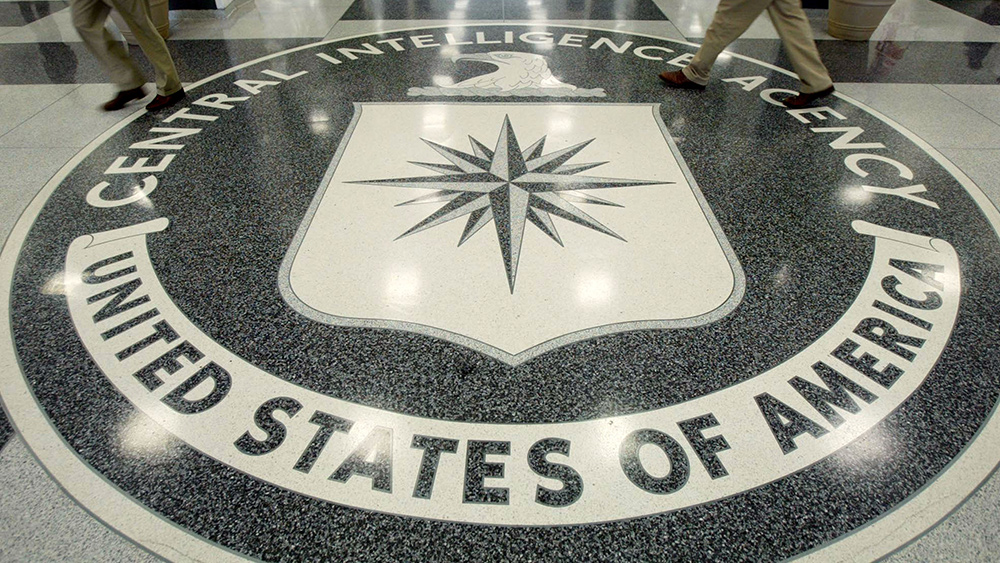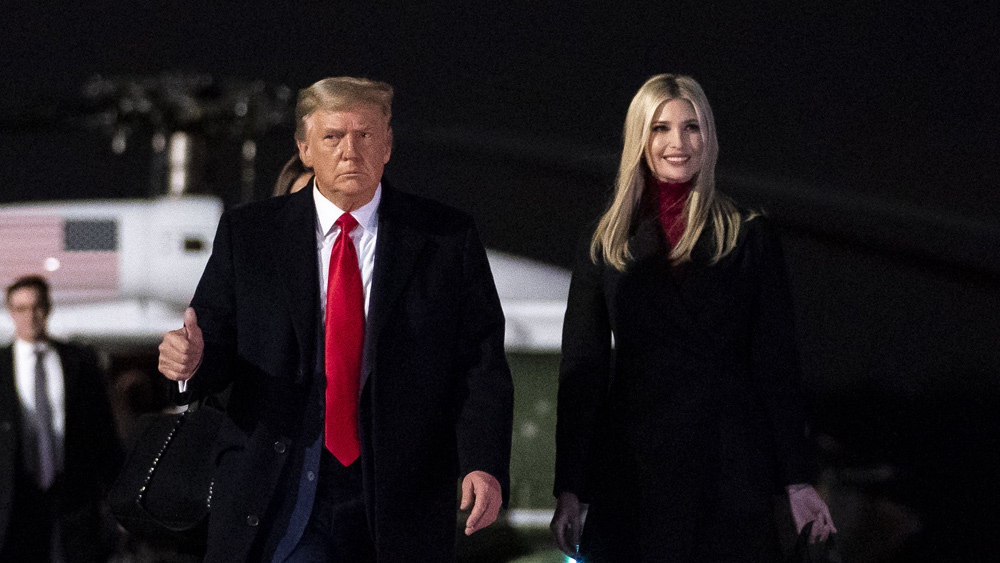Ten Bombshell Revelations From Seymour Hersh’s New Autobiography
from ZeroHedge:

Among the more interesting revelations to surface as legendary investigative journalist Seymour Hersh continues a book tour and gives interviews discussing his newly published autobiography, Reporter: A Memoir, is that he never set out to write it at all, but was actually deeply engaged in writing a massive exposé of Dick Cheney — a project he decided couldn’t ultimately be published in the current climate of aggressive persecution of whistleblowers which became especially intense during the Obama years.
Hersh has pointed out he worries his sources risk exposure while taking on the Cheney book, which ultimately resulted in the famed reporter opting to write an in-depth account of his storied career instead — itself full of previously hidden details connected with major historical events and state secrets.
In a recent wide-ranging interview with the UK Independent, Hersh is finally asked to discuss in-depth some of the controversial investigative stories he’s written on Syria, Russia-US intelligence sharing, and the Osama bin Laden death narrative, which have gotten the Pulitzer Prize winner and five-time Polk Award recipient essentially blacklisted from his regular publication, The New Yorker magazine, for which he broke stories of monumental importance for decades.

But merely a few of the many hit pieces written on this front include The Washington Post’s “Sy Hersh, journalism giant: Why some who worshiped him no longer do,” and elsewhere “Whatever happened to Seymour Hersh?” or “Sy Hersh’s Chemical Misfire” in Foreign Policy — the latter which was written, it should be noted, by a UK blogger who conducts chemical weapons “investigations” via YouTube and Google Maps (and this is not an exaggeration).
The Post story begins by acknowledging, “But Sy Hersh now has a problem: He thinks 1600 Pennsylvania Avenue lied about the death of Osama bin Laden, and it seems nearly everyone is mad at him for saying so” — before proceeding to take a sledgehammer to Hersh’s findings while painting him as some kind of conspiracy theorist (Hersh published the bin Laden story for the London Review of Books after his usual New Yorker rejected it).

 Seymour Hersh broke the story of CIA’s illegal domestic operations with a front page story in the New York Times on December 22, 1974.
Seymour Hersh broke the story of CIA’s illegal domestic operations with a front page story in the New York Times on December 22, 1974.However, the mainstream pundits piling on against his reporting of late ignore the clearly establish historical pattern when it comes to Hersh: nearly all of the biggest stories of his career were initially met with incredulity and severe push back from both government officials and even his fellow journalists, and yet he’s managed to emerge proven right and ultimately vindicated time and again.
Here are ten bombshell revelations and fascinating new details to lately come out of both Sy Hersh’s new book, Reporter, as well as interviews he’s given since publication…
1) On a leaked Bush-era intelligence memo outlining the neocon plan to remake the Middle East
(Note: though previously alluded to only anecdotally by General Wesley Clark in his memoir and in a 2007 speech, the below passage from Seymour Hersh is to our knowledge the first time this highly classified memo has been quoted. Hersh’s account appears to corroborate now retired Gen. Clark’s assertion that days after 9/11 a classified memo outlining plans to foster regime change in “7 countries in 5 years” was being circulated among intelligence officials.)
From Reporter: A Memoir pg. 306 — A few months after the invasion of Iraq, during an interview overseas with a general who was director of a foreign intelligence service, I was provided with a copy of a Republican neocon plan for American dominance in the Middle East. The general was an American ally, but one who was very rattled by the Bush/Cheney aggression. I was told that the document leaked to me initially had been obtained by someone in the local CIA station. There was reason to be rattled: The document declared that the war to reshape the Middle East had to begin “with the assault on Iraq. The fundamental reason for this… is that the war will start making the U.S. the hegemon of the Middle East. The correlative reason is to make the region feel in its bones, as it were, the seriousness of American intent and determination.” Victory in Iraq would lead to an ultimatum to Damascus, the “defanging” of Iran, Hezbollah, Hamas, and Arafat’s Palestine Liberation Organization, and other anti-Israeli groups. America’s enemies must understand that “they are fighting for their life: Pax Americana is on its way, which implies their annihilation.” I and the foreign general agreed that America’s neocons were a menace to civilization.
* * *
2) On early regime change plans in Syria
From Reporter: A Memoir pages 306-307 — Donald Rumsfeld was also infected with neocon fantasy. Turkey had refused to permit America’s Fourth Division to join the attack of Iraq from its territory, and the division, with its twenty-five thousand men and women, did not arrive in force inside Iraq until mid-April, when the initial fighting was essentially over. I learned then that Rumsfeld had asked the American military command in Stuttgart, Germany, which had responsibility for monitoring Europe, including Syria and Lebanon, to begin drawing up an operational plan for an invasion of Syria. A young general assigned to the task refused to do so, thereby winning applause from my friends on the inside and risking his career. The plan was seen by those I knew as especially bizarre because Bashar Assad, the ruler of secular Syria, had responded to 9/11 by sharing with the CIA hundreds of his country’s most sensitive intelligence files on the Muslim Brotherhood in Hamburg, where much of the planning for 9/11 was carried out… Rumsfeld eventually came to his senses and back down, I was told…
3) On the Neocon deep state which seized power after 9/11
From Reporter: A Memoir pages 305-306 — I began to comprehend that eight or nine neoconservatives who were political outsiders in the Clinton years had essentially overthrown the government of the United States — with ease. It was stunning to realize how fragile our Constitution was. The intellectual leaders of that group — Dick Cheney, Paul Wolfowitz, and Richard Perle — had not hidden their ideology and their belief in the power of the executive but depicted themselves in public with a great calmness and a self-assurance that masked their radicalism. I had spent many hours after 9/11 in conversations with Perle that, luckily for me, helped me understand what was coming. (Perle and I had been chatting about policy since the early 1980s, but he broke off relations in 1993 over an article I did for The New Yorker linking him, a fervent supporter of Israel, to a series of meetings with Saudi businessmen in an attempt to land a multibillion-dollar contract from Saudi Arabia. Perle responded by publicly threatening to sue me and characterizing me as a newspaper terrorist. He did not sue.
Meanwhile, Cheney had emerged as a leader of the neocon pack. From 9/11 on he did all he could to undermine congressional oversight. I learned a great deal from the inside about his primacy in the White House, but once again I was limited in what I would write for fear of betraying my sources…
I came to understand that Cheney’s goal was to run his most important military and intelligence operations with as little congressional knowledge, and interference, as possible. I was fascinating and important to learn what I did about Cheney’s constant accumulation of power and authority as vice president, but it was impossible to even begin to verify the information without running the risk that Cheney would learn of my questioning and have a good idea from whom I was getting the information.
4) On Russian meddling in the US election
From the recent Independent interview based on his autobiography — Hersh has vociferously strong opinions on the subject and smells a rat. He states that there is “a great deal of animosity towards Russia. All of that stuff about Russia hacking the election appears to be preposterous.” He has been researching the subject but is not ready to go public… yet.
Hersh quips that the last time he heard the US defense establishment have high confidence, it was regarding weapons of mass destruction in Iraq. He points out that the NSA only has moderate confidence in Russian hacking. It is a point that has been made before; there has been no national intelligence estimate in which all 17 US intelligence agencies would have to sign off. “When the intel community wants to say something they say it… High confidence effectively means that they don’t know.”
5) On the Novichok poisoning
From the recent Independent interview — Hersh is also on the record as stating that the official version of the Skripal poisoning does not stand up to scrutiny. He tells me: “The story of novichok poisoning has not held up very well. He [Skripal] was most likely talking to British intelligence services about Russian organised crime.” The unfortunate turn of events with the contamination of other victims is suggestive, according to Hersh, of organised crime elements rather than state-sponsored actions –though this files in the face of the UK government’s position.
Hersh modestly points out that these are just his opinions. Opinions or not, he is scathing on Obama – “a trimmer … articulate [but] … far from a radical … a middleman”. During his Goldsmiths talk, he remarks that liberal critics underestimate Trump at their peril.
He ends the Goldsmiths talk with an anecdote about having lunch with his sources in the wake of 9/11. He vents his anger at the agencies for not sharing information. One of his CIA sources fires back: “Sy you still don’t get it after all these years – the FBI catches bank robbers, the CIA robs banks.” It is a delicious, if cryptic aphorism.
* * *
6) On the Bush-era ‘Redirection’ policy of arming Sunni radicals to counter Shia Iran, which in a 2007 New Yorker article Hersh accurately predicted would set off war in Syria
From the Independent interview: [Hersh] tells me it is “amazing how many times that story has been reprinted”. I ask about his argument that US policy was designed to neutralize the Shia sphere extending from Iran to Syria to Hezbollah in Lebanon and hence redraw the Sykes-Picot boundaries for the 21st century.
He goes on to say that Bush and Cheney “had it in for Iran”, although he denies the idea that Iran was heavily involved in Iraq: “They were providing intel, collecting intel … The US did many cross-border hunts to kill ops [with] much more aggression than Iran”…
Loading...



